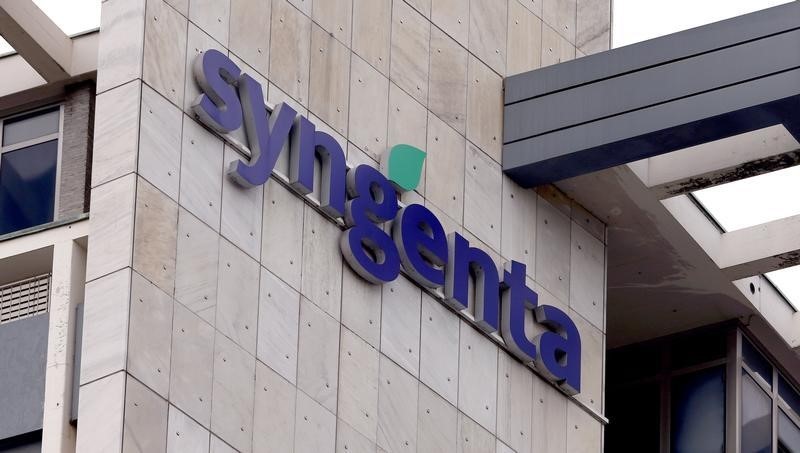By Ludwig Burger and Michael Shields
FRANKFURT/ZURICH (Reuters) - Swiss agricultural chemicals group Syngenta AG (VX:SYNN) plans to buy back more than $2 billion (1.31 billion pounds) worth of stock to boost shareholder returns after rejecting a takeover approach from Monsanto Co (N:MON), selling its vegetable seeds business to fund the measure.
The world's largest pesticides company is under pressure to offer tangible rewards to shareholders after it turned its back last week on a cash-and-shares bid from unwanted U.S. suitor Monsanto worth $47 billion at the time.
The Swiss group will part with the most profitable of its seeds businesses, which has gross profit margins of well above 60 percent compared with about 45 percent for all seeds last year, complicating its efforts to widen group margins.
However, finance chief John Ramsay said a sale was the best way to exploit the strength of that business.
"We're not getting proper recognition either by the market or by Monsanto's approach for the fundamental value of our vegetable seeds assets," Ramsay told Reuters.
Investors welcomed the share buyback decision, lifting Syngenta shares by 3.6 percent. With no alternative bidder on the horizon, analysts had speculated that a buyback could help to appease investors.
Ramsay added there was also little point in combining vegetable seeds with their respective pesticides, as vegetable seeds were mostly grown in greenhouses with pesticides applied more precisely than on crops grown outdoors in fields.
One of Syngenta's strategic principles since 2011 has been to develop and sell seeds in tandem with crop chemicals, but investors have been unimpressed by the results.
Valuation multiples in vegetable seeds are "quite easily" in the 3-6 times sales range, the CFO said. With revenues of $650 million, that implies targeted proceeds of up to $3.9 billion that should easily pay for the share buyback.
"Ultimately the two will wash out," he said.
Bank of America (NYSE:BAC) Merrill Lynch analysts put the value of the business at between $1.6 and $2.4 billion. Bernstein analyst Jeremy Redenius estimated it could fetch more than $2.5 billion, adding that pressure from investors would not let up.
"The 2018 targets (for the entire group) still look unachievable and selling the highest gross-margin seeds business makes them even more distant," he said.
The company, however, expressed confidence in its 2018 margin goal of 24-26 percent and reiterated the full-year guidance for 2015 it gave in July.
It said that the share repurchase programme, which it described as "initial", would commence in the coming weeks, with no change to its policy of increasing dividends .
Syngenta's Chairman Michel Demare had promised a thorough review of the company's product lineup after Monsanto walked away, and raised the prospect of taking a major investor on board.

CFO Ramsay on Thursday specified that only if efforts to boost profitability and market share failed would the group be keen to seek outside partners.